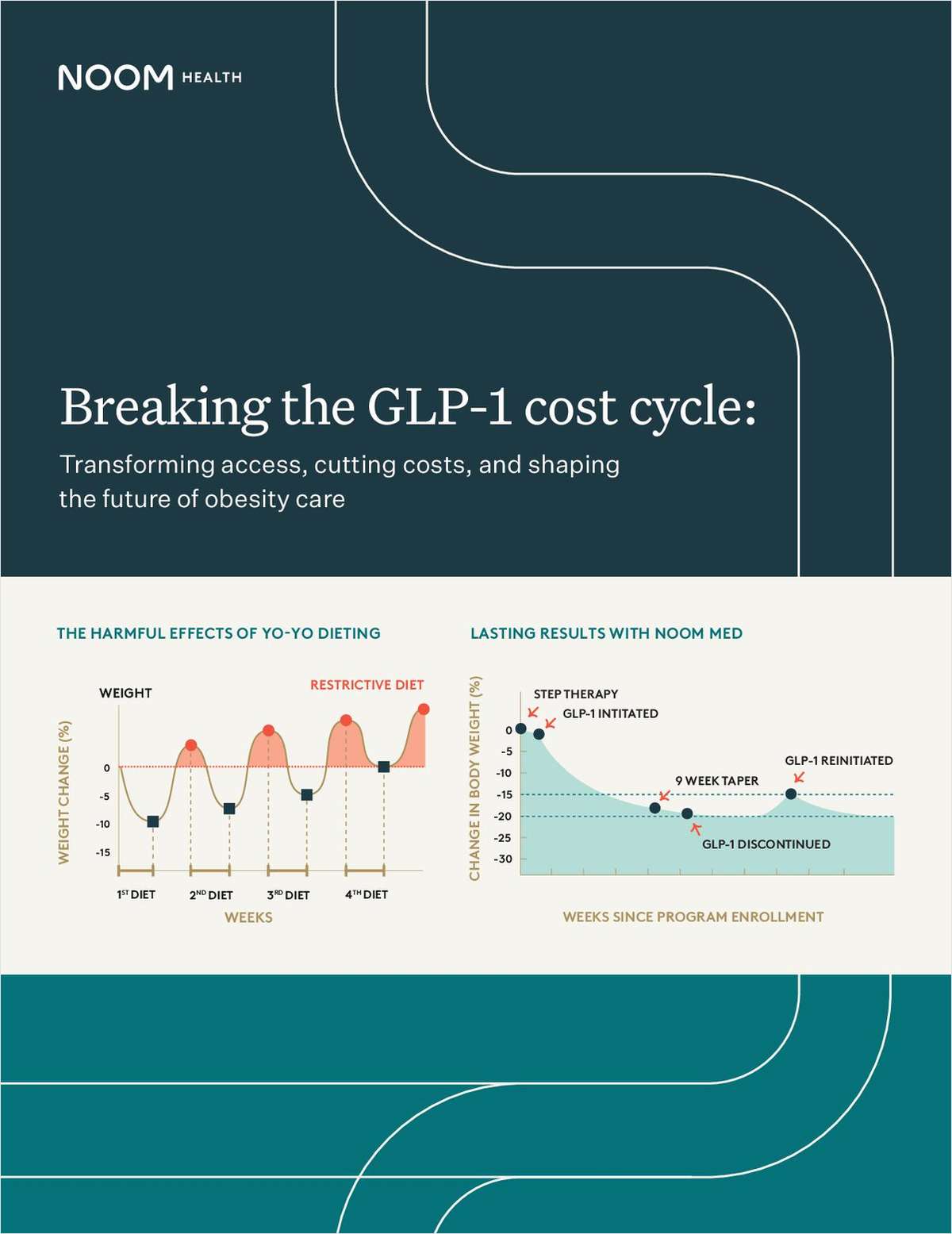Jury Awards $853,000 to Woman After Leak of Confidential Medical Information
A Superior Court jury has rendered a $853,000 verdict to a woman whose medical records were released to her ex-boyfriend by the Avery Center for Obstetrics and Gynecology. The defense has until Dec. 26 to appeal to the Connecticut Appellate Court.
December 20, 2018 at 11:46 AM
4 minute read
 Avery Center for Obstetrics and Gynecology, Westport. Photo: Google
Avery Center for Obstetrics and Gynecology, Westport. Photo: Google
A Bridgeport Superior Court jury has awarded $853,000 to a former Connecticut resident whose medical records were released to her former boyfriend without her knowledge.
At an earlier stage, the Connecticut Supreme Court used this case to state in a matter of first impression that a violation of medical privacy under a federal statute could lead to tort liability under Connecticut law.
A lawsuit alleges the Westport, Connecticut-based Avery Center for Obstetrics and Gynecology complied with a subpoena by Andro Mendoza's attorneys to release all of Emily Byrne's medical records.
The medical records were seen by Mendoza, who was the father of Byrne's daughter. Byrne broke off the relationship with Mendoza about the time she found out she was pregnant and, the lawsuit claims, Mendoza then used that information in a custody fight for the baby to harass and try to extort money from Byrne.
Byrne's attorney, Bruce Elstein of Goldman Gruder & Woods, argued that the unauthorized release of medical files was in violation of regulations under the federal Health Insurance Portability and Accountability Act. The lawsuit, which began 11 years ago, twice came before the Connecticut Supreme Court. That court ruled that a patient in Connecticut harmed by the breach of medical confidentiality had a tort remedy. The case was remanded to Superior Court for trial.
A six-person jury heard six days of testimony, including one full day of testimony by Byrne, now 43. The $853,000 verdict was handed up on Dec. 5. The Avery Center has until Dec. 26 to appeal to the Connecticut Appellate Court.
Avery's attorneys, James Biondo and Diana Carlino, both with the Stamford offices of Rosenblum Newfield, did not respond to requests for comment Thursday.
Elstein said the crux of his case boiled down to Avery releasing the sensitive medical information against his client's wishes. Byrne testified at trial on how that affected her life, Elstein said.
“I don't believe they knew what to do under HIPAA,” Elstein said on why he believes the health center released the information. “They were inadequately trained and they did not even consult a manual prepared for them by a consultant on what to do when presented with a subpoena.”
Elstein said Avery should have “notified the patient of the existence of a subpoena to allow her to object if she wanted to. They did not do that.”
Byrne's testimony, Elstein believes, swayed the jury in his client's favor.
“Emily spoke and the jury heard her,” Elstein said. “She was very compelling. She was able to describe the impact the disclosure had on her and her family. She had some pre-existing sexual assault trauma in her life and the disclosure was bringing back to the forefront the old trauma.”
Also testifying at trial were Byrne's social worker and psychologist.
“Both discussed how she suffered from PTSD [post-traumatic stress disorder] arising out of the impact of the disclosure,” Elstein said. “The social worker went even further and made a statement that the disclosure of the medical records and the use by the ex against her was, in her mind, similar to her experience of being violated as a little girl.”
Elstein said his biggest obstacle was overcoming the “legal issues presented by the HIPAA pre-emption issue and the lack of tort previously for these breach-of-confidentiality cases.”
In court papers, the defense argued the action should be dismissed for lack of subject-matter jurisdiction. The defense also argued “these claims are an [attempt] to bring a private right of action for violation of HIPAA.” The defense likened the negligence action to Connecticut Unfair Trade Practices Act claims arising from HIPAA violations, which Connecticut courts had routinely rejected in the past.
The defense offered $100,000 before trial, which Elstein turned down. The plaintiff's side was looking for the full $1 million insurance policy limit of Avery.
Today, Elstein said, Byrne and her daughter, now 13, are doing well. Mendoza, Elstein said, was granted supervised visitation rights of the girl in 2009, but, he said, “he has seen his child less than four hours since then and has not seen her at all in the last six years.” Mendoza currently lived in Texas, Elstein said.
“Emily is moving on with her life,” Elstein said. “She has found success career-wise and as a mother.” Byrne, Elstein said, is the director of a Vermont medical office.
This content has been archived. It is available through our partners, LexisNexis® and Bloomberg Law.
To view this content, please continue to their sites.
Not a Lexis Subscriber?
Subscribe Now
Not a Bloomberg Law Subscriber?
Subscribe Now
NOT FOR REPRINT
© 2025 ALM Global, LLC, All Rights Reserved. Request academic re-use from www.copyright.com. All other uses, submit a request to [email protected]. For more information visit Asset & Logo Licensing.
You Might Like
View All
'Battle of the Experts': Bridgeport Jury Awards Defense Verdict to Stamford Hospital
3 minute read
Settlement Allows Spouses of U.S. Citizens to Reopen Removal Proceedings
4 minute read
Judge Awards Over $350K in Attorney Fees in Data Breach Class Action Settlement
3 minute readTrending Stories
- 1Law Firms Report Wide Growth, Successful Billing Rate Increases and Less Merger Interest
- 2CLOs Face Mounting Pressure as Risks Mushroom and Job Duties Expand
- 3X Faces Intense Scrutiny as EU Investigation Races to Conclusion & Looming Court Battle
- 4'Nation Is in Trouble': NY Lawmakers Advance Bill to Set Parameters for Shielding Juror IDs in Criminal Matters
- 5Margolis Edelstein Broadens Leadership With New Co-Managing Partner
Who Got The Work
J. Brugh Lower of Gibbons has entered an appearance for industrial equipment supplier Devco Corporation in a pending trademark infringement lawsuit. The suit, accusing the defendant of selling knock-off Graco products, was filed Dec. 18 in New Jersey District Court by Rivkin Radler on behalf of Graco Inc. and Graco Minnesota. The case, assigned to U.S. District Judge Zahid N. Quraishi, is 3:24-cv-11294, Graco Inc. et al v. Devco Corporation.
Who Got The Work
Rebecca Maller-Stein and Kent A. Yalowitz of Arnold & Porter Kaye Scholer have entered their appearances for Hanaco Venture Capital and its executives, Lior Prosor and David Frankel, in a pending securities lawsuit. The action, filed on Dec. 24 in New York Southern District Court by Zell, Aron & Co. on behalf of Goldeneye Advisors, accuses the defendants of negligently and fraudulently managing the plaintiff's $1 million investment. The case, assigned to U.S. District Judge Vernon S. Broderick, is 1:24-cv-09918, Goldeneye Advisors, LLC v. Hanaco Venture Capital, Ltd. et al.
Who Got The Work
Attorneys from A&O Shearman has stepped in as defense counsel for Toronto-Dominion Bank and other defendants in a pending securities class action. The suit, filed Dec. 11 in New York Southern District Court by Bleichmar Fonti & Auld, accuses the defendants of concealing the bank's 'pervasive' deficiencies in regards to its compliance with the Bank Secrecy Act and the quality of its anti-money laundering controls. The case, assigned to U.S. District Judge Arun Subramanian, is 1:24-cv-09445, Gonzalez v. The Toronto-Dominion Bank et al.
Who Got The Work
Crown Castle International, a Pennsylvania company providing shared communications infrastructure, has turned to Luke D. Wolf of Gordon Rees Scully Mansukhani to fend off a pending breach-of-contract lawsuit. The court action, filed Nov. 25 in Michigan Eastern District Court by Hooper Hathaway PC on behalf of The Town Residences LLC, accuses Crown Castle of failing to transfer approximately $30,000 in utility payments from T-Mobile in breach of a roof-top lease and assignment agreement. The case, assigned to U.S. District Judge Susan K. Declercq, is 2:24-cv-13131, The Town Residences LLC v. T-Mobile US, Inc. et al.
Who Got The Work
Wilfred P. Coronato and Daniel M. Schwartz of McCarter & English have stepped in as defense counsel to Electrolux Home Products Inc. in a pending product liability lawsuit. The court action, filed Nov. 26 in New York Eastern District Court by Poulos Lopiccolo PC and Nagel Rice LLP on behalf of David Stern, alleges that the defendant's refrigerators’ drawers and shelving repeatedly break and fall apart within months after purchase. The case, assigned to U.S. District Judge Joan M. Azrack, is 2:24-cv-08204, Stern v. Electrolux Home Products, Inc.











